Skateboarding's next-gen girls are rapidly building on their pioneers' legacy
A 13-year-old Australian skateboarder named Arisa Trew made global headlines last month when she became the first female to pull off a trick with two midair rotations - known as a "720" - in competition, doing so on Tony Hawk's personal ramp in front of the legend himself.
Trew notched a first-place finish in Hawk's Vert Alert, a two-day skateboarding competition and qualifier for the sport's ultimate showdown: the Summer X Games, which is returning to California this month in front of fans for the first time since the pandemic. She wasn't the only young girl to medal at Hawk's event, as 10-year-old Canadian Reese Nelson earned bronze and will also advance to the X Games. The two make the event's silver medalist, Asahi Kaihara, look practically long in the tooth at age 16.
13-year-old skateboarder Arisa Trew made history as the first girl to land a 720 in a competition — and all while Tony Hawk was watching 🤯 pic.twitter.com/ZTDn58LPWU
— NowThis (@nowthisnews) June 30, 2023
These girls aren't anomalies in the sport. There have always been passionate women skateboarders, but over the last decade, skateboarding has undergone a seismic shift with an increasing number of women and girls picking up the sport.
"The growth of women's skateboarding is essential to the growth and reach of skateboarding overall," Hawk told theScore via email. The pioneer has been instrumental in mentoring young female skaters. "Some of the best young skaters are female, and I'm proud to help facilitate the progression of women's skateboarding in any way I can."
Hawk might be one of the most visible proponents of women in skateboarding, but much of the work to get more women into the sport has been undertaken at a grassroots level by both professional skateboarders and industry leaders.
"Growing up, the vibe was certainly not very welcoming," said professional skateboarder Amelia Brodka, who started skating in the early 2000s after her family moved from Poland to New Jersey. "It felt like I constantly had to prove that I could be at the skate park with the guys. I'd constantly get challenged or not be given turns on the ramp, get snaked, and things like that."
She loved skating but didn't like that atmosphere. "I would just go to the skate park when I knew nobody else was there," she said. "I would just skate by myself, which sounds so boring and lame now."
After creating the 2012 documentary "Underexposed," which chronicles the challenges of female skaters, Brodka co-founded Exposure - a women's only skateboarding competition that spurred year-round programming, learn-to-skate clinics, and even college scholarship opportunities.
"At the time, it seemed like the pinnacle was going to the X Games," Brodka said. The event was a leader in the equal-pay movement, having offered equal prize money to both men and women since 2007. But, in 2010, event organizers canceled the women's vert competition. "All of a sudden, it was like, 'How could you be a part of skateboarding? How could you pursue it?'" Brodka remembered.
"We started Exposure at a time where there seemed to be virtually no opportunities for women and girls in skateboarding."
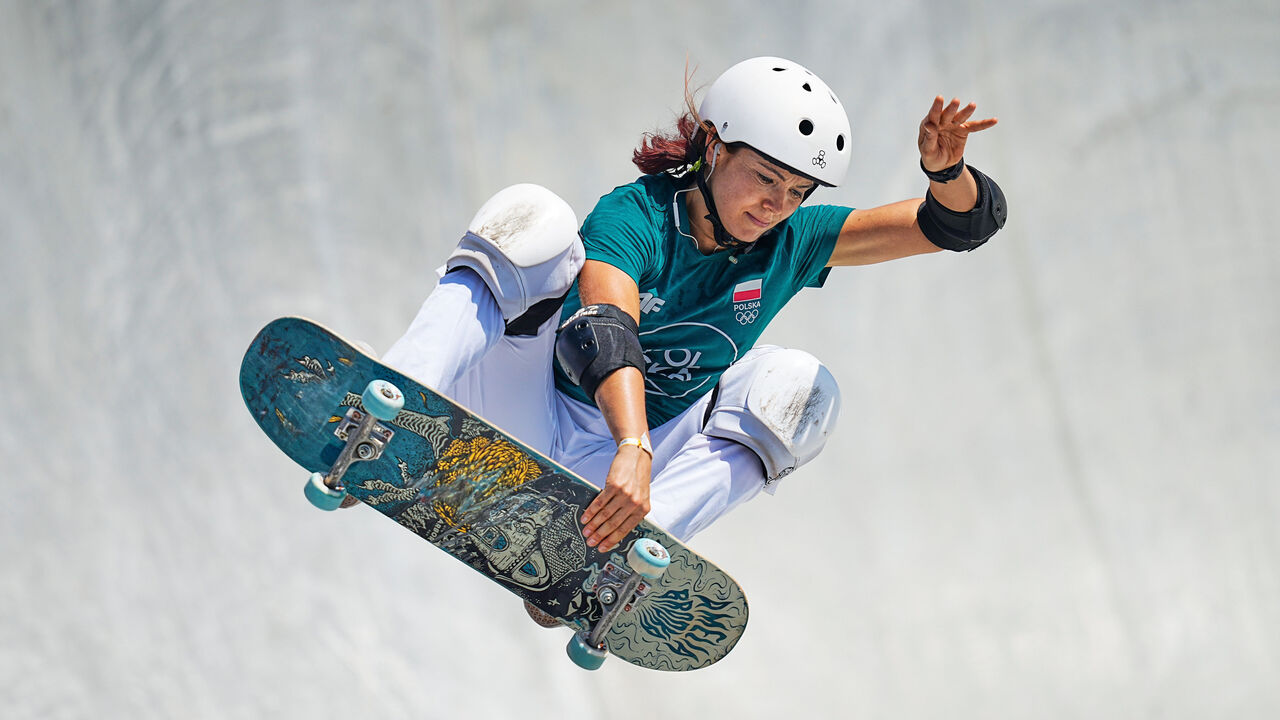
Brodka's event grew from 32 female competitors at the outset to 230 competitors by 2020, the year skateboarding was scheduled to make its debut at the Olympics. "Thinking about what happened between then and now is kind of mind-blowing because the rate of progression has been incredible in terms of just the amount of girls and women getting into skateboarding, the ability level of the top female skateboarders and how they're starting super young," said Brodka, who represented Poland when the Tokyo Games were finally held in 2021.
That rate of change is the result of formal events like Brodka's and informal changes at skateparks across the world. "I think that the skate community is receptive. I think (if) they're not aware of their blind spots, they're becoming aware of their blind spots. And they're receptive to embracing change," said Dr. Zoe Corwin, who led a 2020 study at the University of Southern California into skateboarding."You're seeing two things happening: At the ground level, more women and queer skaters are interested in skating and carving out spaces for themselves. And then you're also seeing, from an intentional approach, more opportunities for women in skateboarding," said Corwin.
Corwin's team found 57% of the female skaters surveyed said their gender was the most important part of their identity, compared to just 6% of male skateboarders. "If you're a female skater, that's always going to be something that you're having to navigate," Corwin said. "If you're a woman, you are thinking more about how you're seeing the role you have to play ... you have to keep on positioning yourself and thinking about how you fit into the larger world."
In the same study, 54% of survey respondents - the highest proportion - indicated being able to meet their friends at the skatepark was what they liked most about it - even more than the skating itself. For women, when that community includes other women, it can help reduce the feeling of constantly needing to position oneself. Events like Brodka's help women feel comfortable in skateparks so they don't have to skate alone like she did growing up. "For me, skateboarding and community are so bound together. It's such a group effort," she said.
Brodka is hardly alone in feeling that way. "About six years ago, I saw a group of five girls skateboarding down the street in New York, and I just sprinted to them," said Briana King, a model and skateboarder. "I was like, 'Wow, can I skate with you?'"
Growing up in East Los Angeles, King was surrounded by skateboarding but never felt accepted by it. "When I finally got into skating, I was bullied out of it, just for the sake of being a woman. I had tried multiple times throughout my life to get into skateboarding. I just never felt welcome." Finding that group of women in New York changed things.
"It gave me a new happiness that I never thought I could feel," she said. "I wanted people to experience the same kind of love that I experienced through skateboarding with other women."
That's when King started organizing meetups for other female skateboarders to connect. "It picked up immediately. My first meetup, I had like 35 people, then 100 people. Then I started doing meetups all over the world," she said. "We have a place for ourselves now."
And as women in skateboarding carve out more of a presence, the tide is rising in other action sports, too. In surfing, the World Surf League announced in 2018 that it would award equal prize money to male and female surfers at all of its events. "I'm so inspired by all the women around me, and it was also really cool to see how many men got behind equal prize money and how supportive they were. I thought that was really cool," said Team USA surfer Caroline Marks, who was the first woman to win an event after the equal prize money announcement.
Like skateboarding, surfing also made its Olympic debut in 2021. The strong crossover audience between the two sports further expanded the spotlight on women globally.
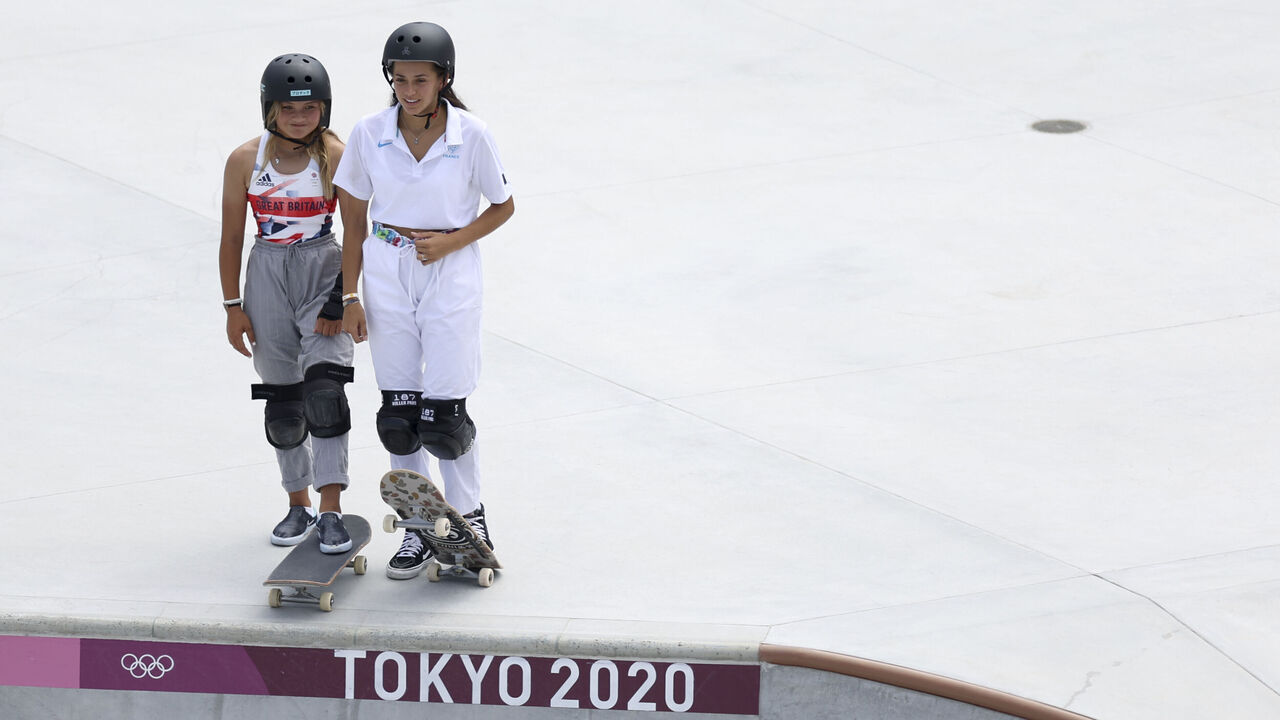
All of those combined efforts have not only lifted women's performance in skate competitions but also their global reach. Today, some of the biggest skateboarders with crossover audiences on social media are girls. Sky Brown, who competes in both skateboarding and surfing, has more than two million followers on TikTok. Rayssa Leal, a 15-year-old skateboarding sensation from Brazil, has over six million followers on Instagram - about three times as many as household name Shaun White and one million more than Nyjah Huston, one of today's most popular male skateboarders. Both teenagers are Olympic medalists.
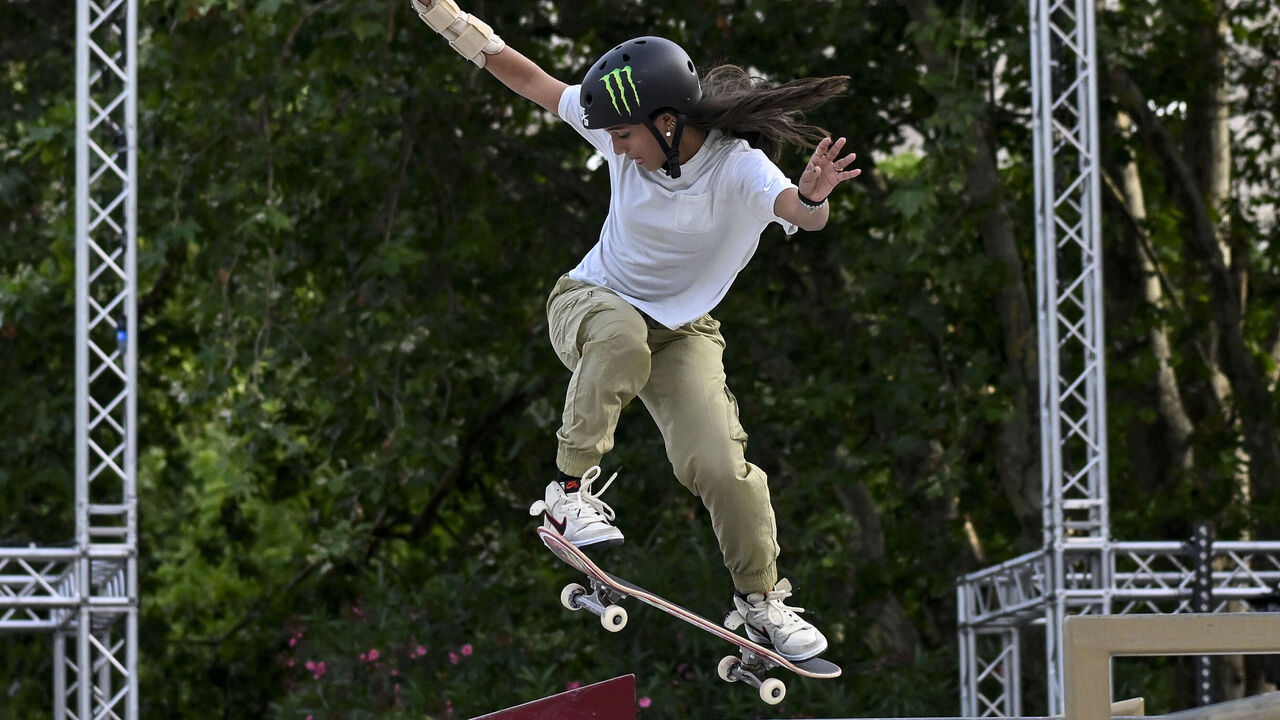
And there's a wave of girls hitting the local skateparks. "I would say a lot of girls are starting to go for it," said Cecely Todacheenie, who co-owns a New Mexico skate shop with her husband. "It's amazing to see how talented a good amount of the female skateboarders are. Some of them go gnarly and get really creative and do very complicated tricks."
"The mentality overall became more accepting," said Dave Balton, owner of BlackHole SkateShop in Ventura, California. "When something's a little bit more accepting, people are a little bit braver to dive into the deep end and try stuff that may be out of their range. There has been a paradigm shift as far as the cutoff point on what girls can do. Those young ladies are crazy killing it. Like, insane."
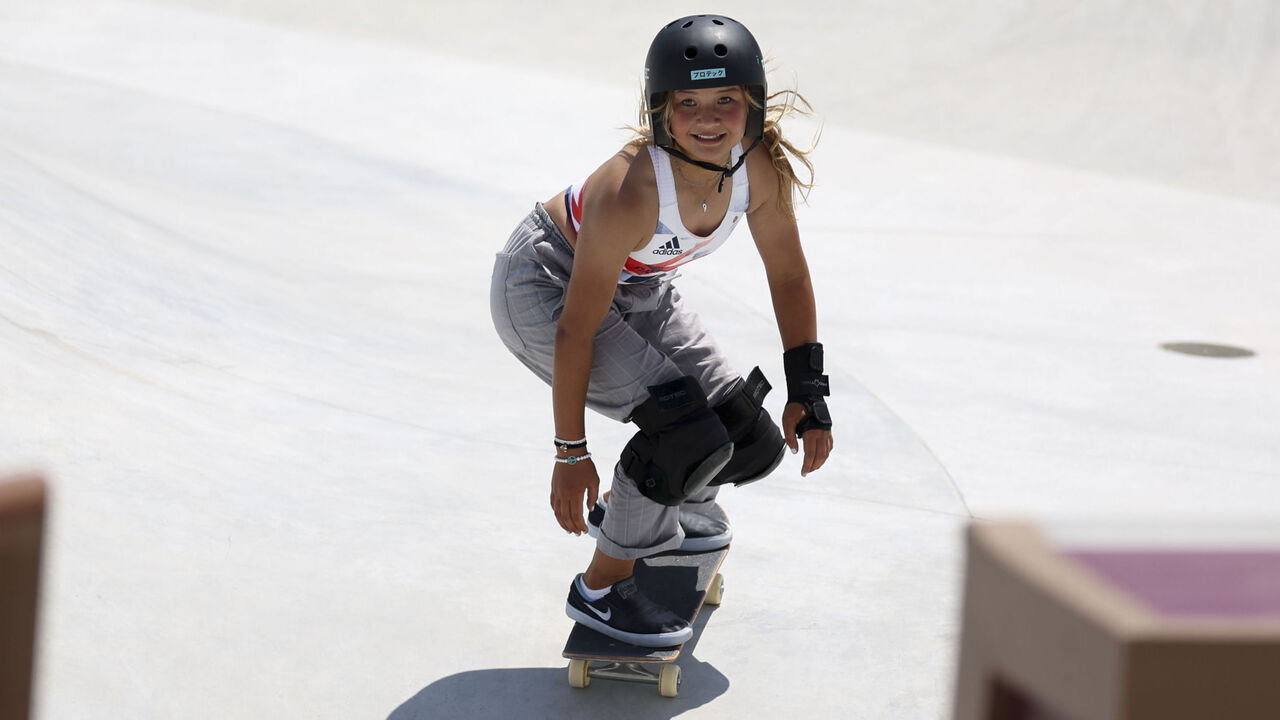
And that change has worked its way back to the X Games, which has remained one of the sport's most anticipated events and highest achievements. For the 2023 X Games, which will take place in Ventura, California, not only have organizers added the women's best trick discipline to the program, but they're also bringing back the women's vert competition for the first time since 2010.
"The growth and progression of young women's competitions, their tricks, their talent, is rivaling the men," said Brian Kerr, director of sports and competition at the X Games.
Bryce Wettstein will be one of the women benefiting from the change. Dressed in a kaleidoscope of colors, carrying a ukulele, blowing bubbles, and quoting poetry, Wettstein is one of today's elite skaters defining the sport on her own terms. At age 19, she's already an Olympian and has an X Games bronze medal in park and two second-place finishes at Hawk's Vert Alert. This will be the first time in her career that vert has been an option at the X Games.
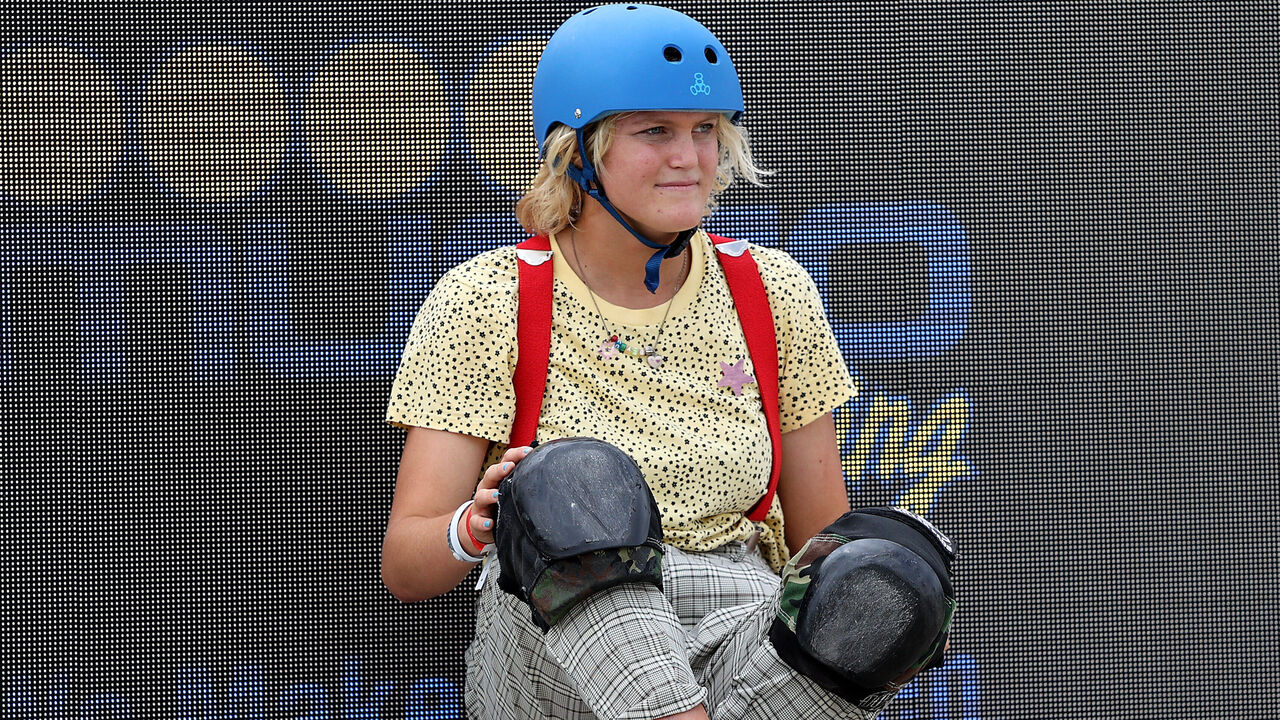
"I wish I could remember that first moment I went skateboarding," she said. Wettstein started the sport so young - courtesy of her dad - that she's never known her life without it. The family had a pool in their backyard they transformed into a skate bowl dubbed "The Iguana Bowl" after Wettstein's favorite pet. She decorated it with rainbows, stars, and a host of other colorful art. She's only ever known a version of the sport that's embraced her femininity. When she first started competing, Wettstein joined a team with five other girls.
"We had each other. And we kind of broke away that shyness because we just became such a family," she explained.
And those beginnings have allowed her to develop the confidence to explore. "The beauty in skateboarding is it's just you, and the people you love and the things you love," she said. "I can't help but not care about what people think about me because I just love skateboarding so much."
Jolene Latimer is a video producer and feature writer at theScore.